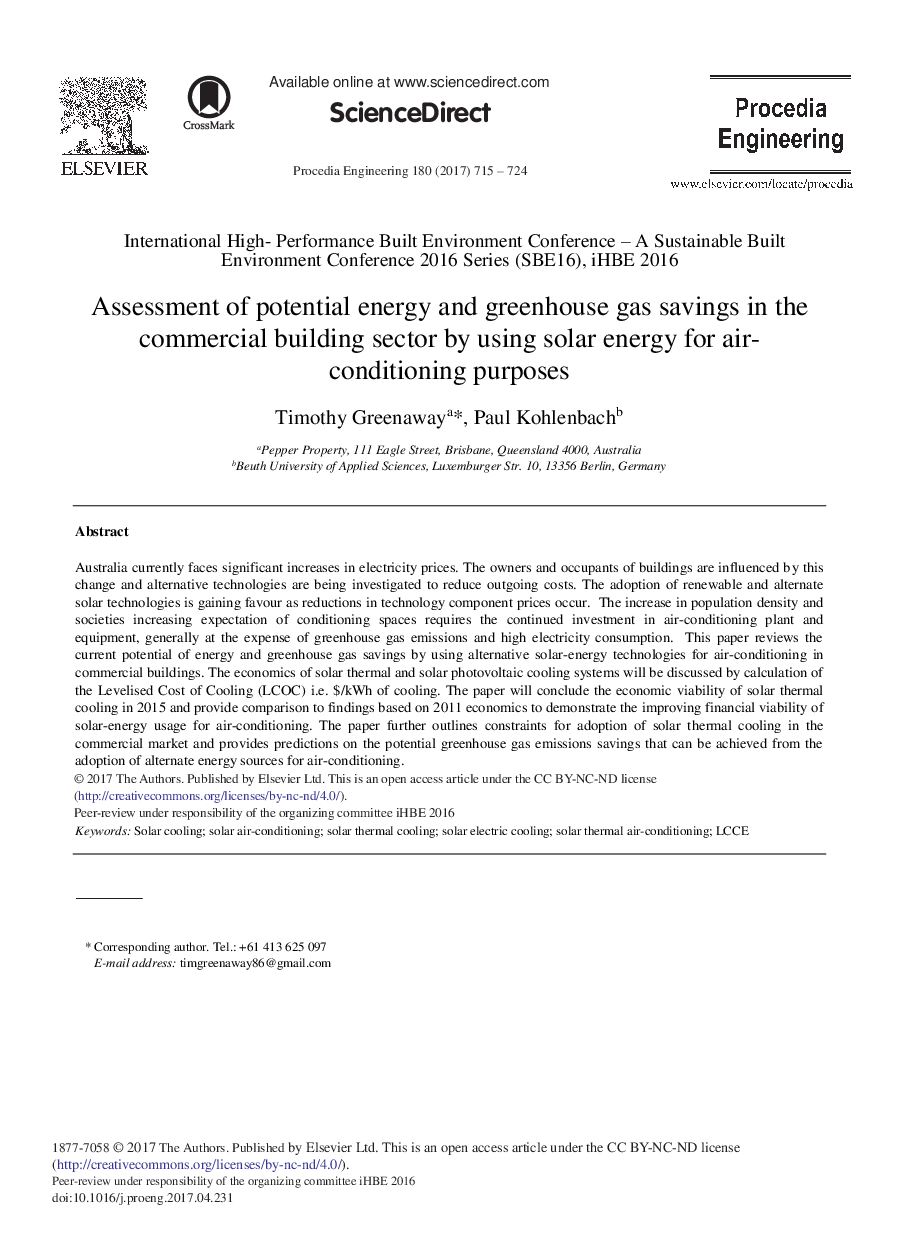| کد مقاله | کد نشریه | سال انتشار | مقاله انگلیسی | نسخه تمام متن |
|---|---|---|---|---|
| 5028976 | 1470646 | 2017 | 10 صفحه PDF | دانلود رایگان |
عنوان انگلیسی مقاله ISI
Assessment of Potential Energy and Greenhouse Gas Savings in the Commercial Building Sector by Using Solar Energy for Air-conditioning Purposes
ترجمه فارسی عنوان
ارزیابی انرژی بالقوه و پس انداز گازهای گلخانه ای در بخش ساختمان تجاری با استفاده از انرژی خورشیدی برای اهداف تهویه مطبوع
دانلود مقاله + سفارش ترجمه
دانلود مقاله ISI انگلیسی
رایگان برای ایرانیان
کلمات کلیدی
موضوعات مرتبط
مهندسی و علوم پایه
سایر رشته های مهندسی
مهندسی (عمومی)
چکیده انگلیسی
Australia currently faces significant increases in electricity prices. The owners and occupants of buildings are influenced by this change and alternative technologies are being investigated to reduce outgoing costs. The adoption of renewable and alternate solar technologies is gaining favour as reductions in technology component prices occur. The increase in population density and societies increasing expectation of conditioning spaces requires the continued investment in air-conditioning plant and equipment, generally at the expense of greenhouse gas emissions and high electricity consumption. This paper reviews the current potential of energy and greenhouse gas savings by using alternative solar-energy technologies for air-conditioning in commercial buildings. The economics of solar thermal and solar photovoltaic cooling systems will be discussed by calculation of the Levelised Cost of Cooling (LCOC) i.e. $/kWh of cooling. The paper will conclude the economic viability of solar thermal cooling in 2015 and provide comparison to findings based on 2011 economics to demonstrate the improving financial viability of solar-energy usage for air-conditioning. The paper further outlines constraints for adoption of solar thermal cooling in the commercial market and provides predictions on the potential greenhouse gas emissions savings that can be achieved from the adoption of alternate energy sources for air-conditioning.
ناشر
Database: Elsevier - ScienceDirect (ساینس دایرکت)
Journal: Procedia Engineering - Volume 180, 2017, Pages 715-724
Journal: Procedia Engineering - Volume 180, 2017, Pages 715-724
نویسندگان
Timothy Greenaway, Paul Kohlenbach,
